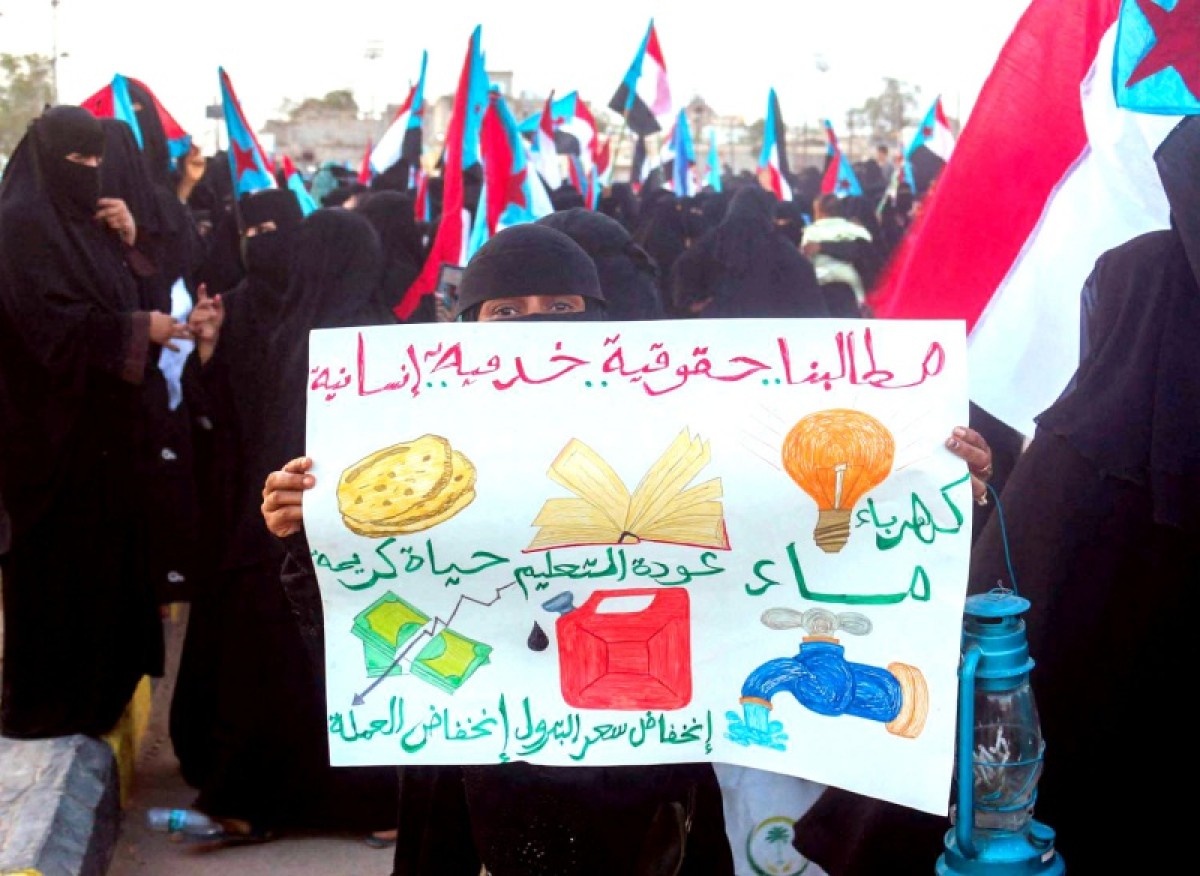Newspaper: Popular anger moves self -criticism within the components of Yemeni legitimacy


The partner parties in the Yemeni Sharia Authority do not cause accusations about responsibility for the poor economic and social conditions, the deterioration of services and their lack of sometimes in the areas affiliated with that authority, a significant impact on the negative popular mood towards the various of these parties, nor from the escalating anger in Aden, cities and others, which has become a warning to legitimacy in all its components. During the recent period, Aden witnessed protest demonstrations on the difficulty of the living situation and the deterioration of services embodied in the repeated interruptions of water and electricity, which recently culminated in the exit of women's demonstrations that resonated with wide media and great sympathy from human rights agencies inside Yemen and even outside it.
Those situations prompted voices described by realism and rationality to conduct a self -criticism of the bodies to which the owners of these voices belong to themselves.
Adnan Al -Kef, the leader and founding member of the Southern Transitional Council, said that the protest demonstrations witnessed by Aden and other governorates have revealed that citizens have overwhelmed the stage of anger from the deteriorating living and service conditions to a worse stage characterized by all the components participating in the authority that he described as masculine in corruption.
Adnan Al -Kaf: People's hatred includes all parties and components involved in power
The southern transition is considered a major party in Yemeni legitimacy and is a representative in its institutions at the highest level and participating in the formation of its government, without preventing it from criticizing it hard and holding it responsible for the severe successive crises in its areas, most of which fall within the areas of the influence of the council itself, which makes it very resentful of bad conditions for its residents to know this on its influence on its popularity.
Al -Kef, who holds the membership and Reconciliation Commission membership in the Yemeni Presidential Command Council and also the position of Aden Undersecretary for Development, wrote in a leaflet entitled “Why do they hate them” saying, “After the terrorist attacks on the United States of America on September 11, 2001, the American media was widely asked a question: Why do they hate us.”
He added, “I remembered this question while I was watching the expressions of people in Aden and their deep hatred of those in charge of power in the capital, Aden, and all the governorates of the south.
Al -Kef saw in his post that these data arrange “these those who control the authority must wake up and wake up from their sleep and rectify their affairs .. and ask themselves: Why do people hate them.”
And not far from the self -cash context that began to move the difficulty in the areas of legitimacy and its popular anger. Abdul Rahman Sheikh Abdul Rahman, a member of the Consultation and Reconciliation Commission at the Command Council, Aden for Directorates Affairs, said that the worsening living and service crises require change and restructuring of the authority.
Abdul Rahman explained in statements to local media that “the structure of the authority, including the Command Council, the formation of a professional efficiency government, the change of local authorities in the governorates, and the giving them wide ruling powers is the true entrance to development and construction and the restoration of the dignity of people wasted by the corrupt,” stressing that “the only option available is the departure of these corrupt people.”
Commenting on what was stated in the words of the two men, especially Adnan Al -Kaf, the journalist Majid Al -Daari said, “The people will not be long for them, but will turn into a popular revolution that uproots everyone.”